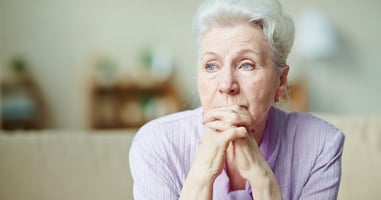Use of citalopram alone or in combination with psychotherapy for complicated grief (CG) may do...
COVID-19 May Lead to Uptick in Cases of Prolonged Grief Disorder
 |
Prolonged grief disorder is characterized by intense yearning/longing for the deceased person or a preoccupation with thoughts or memories of the deceased person accompanied by significant distress or impairment.
COVID-19 has claimed the lives of more than 500,000 people worldwide. Additionally, physical distancing measures to contain the virus have changed the experience of dying from COVID-19 and other causes and disrupted the grieving process, which may increase the risk of prolonged grief disorder:
- Few, if any, family members can be at the sides of those dying from COVID-19. “Comprehending the reality of a loss is difficult under any circumstances, but even more so when the death is sudden and a loved one is left to die alone,” they wrote.
- Cultural and religious rituals have been largely disrupted. For instance, private viewings are not often possible, in-person funerals can have only a few guests, and hugging and/or other physical contact between mourners is discouraged.
- The closure of schools, workplaces, places of worship, and limits on informal gatherings “can intensify the sense of social isolation and loneliness that is a part of the natural experience of many grieving individuals,” they wrote.
“The dramatic upheaval caused by the death of a loved one often triggers troubling feelings and thoughts,” Goveas and Shear wrote. “In addition to yearning and sadness, most people feel anxiety, guilt, or anger. Bereaved people are inclined to protest the death and have a natural tendency to imagine alternative scenarios in which their loved one did not die. Most feel survivor guilt. Although there is little research on the topic of survivor guilt, we believe that it is a universal human feeling.”
To lessen the adverse consequences of the death of a loved one during the pandemic, the authors recommended that clinicians learn more about the natural grieving process and how they might assist grieving patients in modulating their emotional pain; the thoughts, feelings, and behaviors that can stall or halt the grieving process; the unique challenges faced by the bereaved during the pandemic; and available treatments for caring for patients with prolonged grief disorder. The authors also called for the continuance of relaxed regulations that have permitted the expansion of telehealth services across the country to ensure continued access to much-needed care for bereaved individuals after the pandemic ends.
(Image: iStock/tommaso79)
Now in Psychiatric News
 |
Seven Tips for Maintaining the Frame in Online Therapy
Don’t miss out! Learn when Psychiatric News posts new articles by signing up here.




